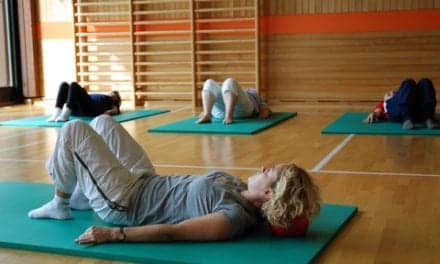Exercise may be associated with longer life in heart failure patients, according to new research.
The study, presented during a trial session at Heart Failure 2016 and the 3rd World Congress on Acute Heart Failure, suggests that heart failure patients could benefit from exercise regardless of their heart failure severity, age, or gender.
“Patients with heart failure should not be scared of exercise damaging them or killing them,” says principal investigator Professor Rod Taylor, chair of health services research and director of the Exeter Clinical Trials Unit at the University of Exeter Medical School in Exeter, UK, in a media release from the European Society of Cardiology.
“The message for heart failure patients is clear. Exercise is good for you, it will make you feel better, and it could potentially make you live longer.”
To conduct the study—called Exercise Training Meta-Analysis of Trials in Heart Failure (ExTraMATCH II)—Taylor and his team identified 23 randomized trials of exercise that included at least 50 heart failure patients who were followed up for 6 months or longer. After asking the authors of all 23 studies for individual patient data, they received the information from 20 trials.
Among the 20 trials—which included 4,043 patients with heart failure—the investigators used the individual patient data to assess the impact of exercise on the time to all-cause mortality and first hospitalization. They also examined the potential influence of patient characteristics including age, gender, heart failure severity (defined by New York Heart Association class), ischaemic aetiology, baseline left ventricular ejection fraction, and peak oxygen uptake, the release explains.
The researchers found that exercise was associated with an 18% lower risk of all-cause mortality and an 11% reduced risk of hospitalization compared with no exercise.
“This analysis did in fact show that there is a mortality benefit from doing exercise. In other words, patients who exercised had a lower risk of death than those who didn’t,” Taylor notes in the release.
The effect of exercise on mortality and hospitalizations did not differ according to any of the patient characteristics that were analyzed, according to the release.
“If heart failure patients are active, we can be pretty sure that they will live longer. The simple advice would not be to take up marathon running. This is about increasing one’s routine physical activity—for example, walking for 20 to 30 minutes three times at week at an intensity that makes you feel a little bit breathless but not necessarily symptomatic,” Taylor shares.
[Source(s): European Society of Cardiology, Science Daily]





